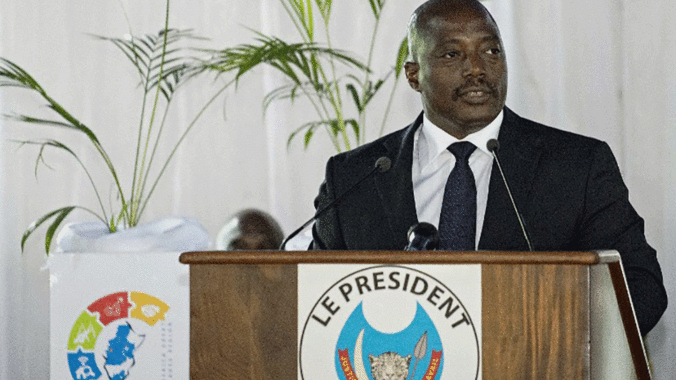PBS: Escaping Eritrea … [Read More...] about ካብ ውሽጢ ቤት ማእሰርታት ኤርትራ
Kabila employs delay tactics to stave off presidential elections
Stephanie Wolters |
Indicators are that the government does not intend sticking to constitutional deadlines, and is instead pursuing a strategy of delaying elections.
In mid-January, the Independent National Electoral Commission of the Democratic Republic of the Congo (DRC) announced it would need 18 months to update the voters’ roll. This was followed by an announcement by the minister of the interior that a new electoral law, and several others related to the elections, would first have to be tabled during Parliament’s next session, starting in March.

These two timelines are the most concrete indicators of what many have long suspected: the government does not intend to stick to constitutional deadlines, which mandate that the presidential election take place in November this year, and that it is pursuing its strategy of glissement – an indefinite delay of elections.
The opposition and civil society have cried foul, but the reality is slowly setting in that the November deadline will come and go, and that presidential elections will not take place. By design or by default, the commission has made little progress on even the most basic preparations for any elections – local, provincial or presidential – which it intends to hold in this election cycle.
In Kinshasa the talk is of a “technical delay”, a term that allows the ruling party and the presidency to be distanced from the process. Corneille Nangaa, the commission’s president, has been on TV and radio stations to explain the technical process.
When it comes to a constitutional crisis prompted by a delayed presidential poll, the government has a ready-made answer: Article 70 of the Constitution, which states that the president remains in office until he is replaced by another elected president. Few are buying it; and nor should they.
By various accounts, the commission had already prepared a call for tenders for the voter registration process in October 2015, and awarded it to a Belgian company. The commission now states it had nothing to do with that tender process, saying it is void, and has launched a new one.
Between the voter registration delay and the fact that the president has yet to declare that he will not run for a third term, uncertainty about the country’s political future is running high.
The international community has been vocal about the need to respect the Constitution, as have the United Nations, the African Union and the European Union. No one has commented on the 18-month voter registration process. This creates the risk that the government will believe it has found an acceptable loophole.
One solution would be for the international community to assist in accelerating the registration process by offering resources to complete the work as close as possible to the November election deadline.
No constructive dialogue
Another contentious issue is dialogue. Last year, President Joseph Kabila announced he was convening a dialogue to discuss the electoral calendar. The opposition and civil society rejected this initiative, because it was perceived as yet another stage-managed event. Opposition parties have also rejected it on the grounds that it legitimises the government’s strategy of orchestrating a delay in the election calendar.
Both arguments are legitimate, but with statements such as the one made recently by UN secretary general Ban Ki-moon and others, it is clear that the international community wants a dialogue between parties to reach consensus on the way forward.
After UN special envoy to the Great Lakes Said Djinnit’s inconclusive visit to Kinshasa in November 2015 to explore his role as mediator, the task has fallen to the AU’s Edem Kodjo, who was put in charge of leading the mediation in January.
The fact that nothing came of the UN’s offer to assist could indicate that Kabila was not willing to accept the UN’s requirement that the process be independent.
Although a number of opposition parties refused to talk to him, Kodjo’s first visit to the DRC was a moderate success. There is a perception that he is simply picking up the initiative for a national dialogue where the government left off. If the AU wants Kodjo to play the role of a neutral facilitator, he must make it clear that he is not associated with the government’s initiative and that he will lead a new, independent process between political parties, not between the president and political parties.
If Kodjo manages to do this, the opposition should use the opportunity for constructive dialogue.
This may not be what the government wants. But only if Kodjo makes it clear that the dialogue is independent will we be able to gauge whether the ruling party and the president are committed to finding a compromise solution to the election impasse. The country needs clarity on when elections will be held, and what the president intends to do – not more empty justifications and contorted interpretations of the Congolese Constitution.
The consequences of a prolonged period of uncertainty will probably lead to greater instability. There are already splits in the ruling coalition over the issue of the election and the absence of a successor, and there is growing participation in protest action. How the military and police would react if there are sustained protests is unclear. The signs that things could go badly are all there. If Kabila does not make the right choice, the population will be looking to the AU, the UN and key countries to make the difference.
Stephanie Wolters is head of the Conflict Prevention and Risk Analysis division at the Institute for Security Studies.
